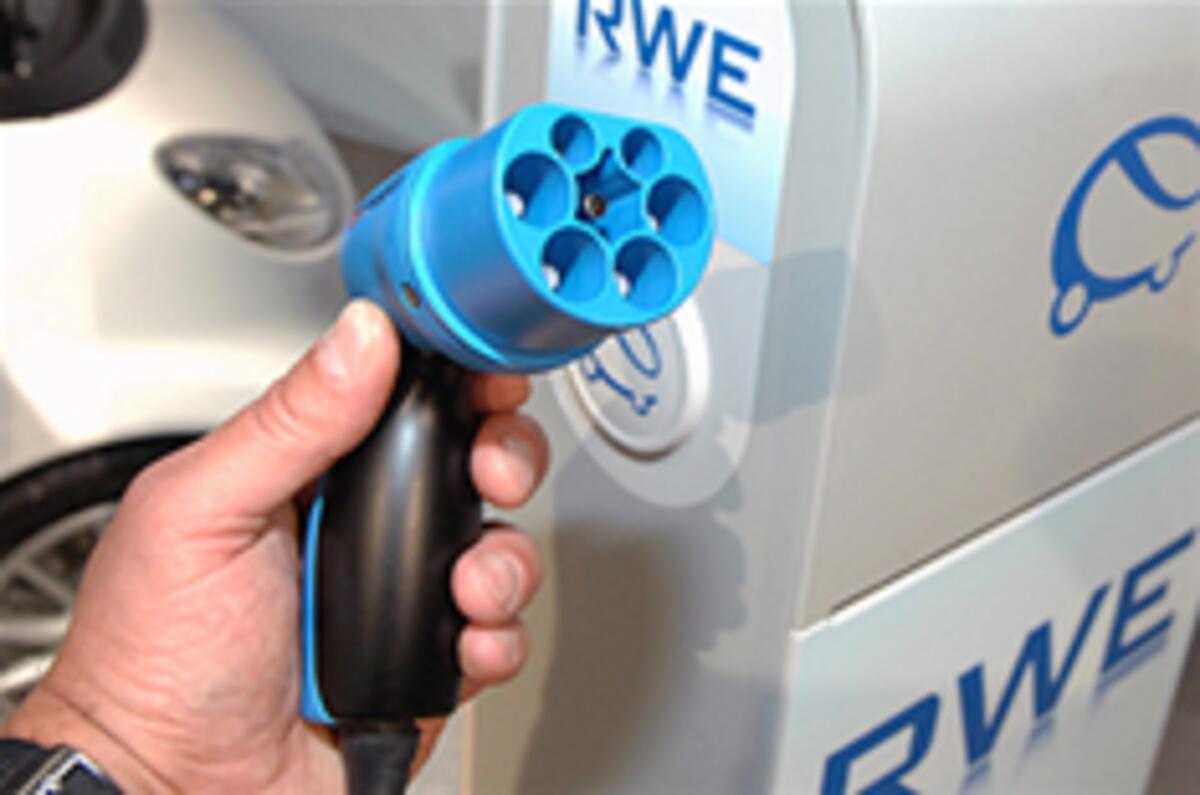German power company RWE is attempting to standardise the charging infrastructure required for the large-scale adoption of electric cars across Europe, including a standard plug to connect cars to charging points.
The company intends to begin work on the system during the second half of this year, and has already shown a prototype of the plug. Compatible with a domestic 230-volt or the more powerful three-phase 400-volt supply, it can help charge an electric car’s battery much faster than a domestic supply can, as well as offering a secure and weatherproof connection.
Read UK leads the way on electric charging here.
RWE claims that using one of its charging points with 400 volts can cut the charging time of an electric car with a 20kWh battery from the six hours needed with a domestic socket to one hour. The technology has been developed with 20 European car makers, including Daimler, BMW, VW, GM and Fiat, and Japanese manufacturers with a European base, such as Toyota. RWE is testing the charging stations in Berlin, using Smart Fortwos.
Countries across Europe currently use different plug standards for their charging stations, and the standard can vary within each county depending on who made the charging point. According to Bart Biebuyck, a Toyota engineer involved with the project, the driver of an electric car travelling from the UK to Italy would have to carry four different plugs to be able to recharge en route.
RWE’s infrastructure plan includes proposals for a billing system for power use based on the method mobile phone providers use. The plug and cable contains a data line, so when the car is plugged in the system automatically recognises it, selects the right power output and bills your account for the power you use. Initially the service will only be available to users with an RWE contract, although the firm plans to open the service to everyone.
However, the plug has its disadvantages. It would make it impossible to plug your car into a domestic socket, meaning you may have to get an RWE charging point wired in to your home. And for the system to work across Europe, energy firms would need to co-operate on supply and billing methods.




Add your comment